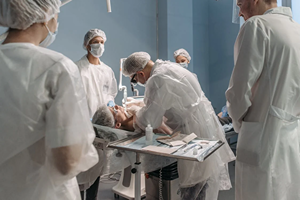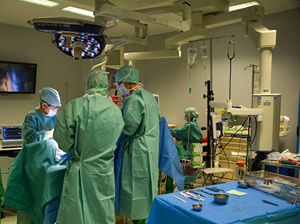Introduction
Medical malpractice trials are a complex interplay of legal standards, medical practices, and the ramifications of medical errors. One of the crucial elements in these trials is expert testimony, which can make or break a case. Expert witnesses provide the necessary professional insights and can clarify the standards of care expected in the medical field, offering juries a lens into the clinical context of the case at hand.
With this in mind, understanding the key considerations for expert testimony in medical malpractice trials is vital for both plaintiffs and defendants. This article will outline various aspects of expert testimony, including selection, qualifications, credibility, and presentation in court.

Understanding Medical Malpractice
Before delving into expert testimony, it is essential to define what constitutes medical malpractice. Generally, medical malpractice occurs when a healthcare professional provides treatment that deviates from accepted medical standards, resulting in harm to a patient. Some critical components of a medical malpractice claim include:

- Duty of Care: The healthcare provider had an obligation to the patient. Breach of Duty: The provider failed to meet the expected standard of care. Injury: The patient suffered an injury. Causation: The breach of duty directly caused the injury.
In the context of a court case, expert testimony plays a pivotal role in establishing the breach of duty and demonstrating the standard of care.
Key Considerations for Expert Testimony
1. Selection of the Expert Witness
The selection of an expert witness is foundational in ensuring the effectiveness of the testimony provided. A well-chosen expert can significantly influence the jury’s perception of the case.
Points to consider when selecting an expert include:

- Relevant Specialty: The expert should possess expertise in the relevant field of medicine related to the case. For instance, in a surgical malpractice claim, both the nature of the surgery and the specialties involved are critical. Experience: A seasoned professional with years of practice and numerous similar cases under their belt will hold more credibility. Teaching and Research Roles: Experts who also engage in teaching or research within their field can add additional credibility.
2. Qualifications and Credentials
Every expert witness must have well-documented credentials. The focus should be on http://birth-injuries-infographics-article.raidersfanteamshop.com/the-benefits-of-hiring-an-established-firm-like-moseley-collins-law their education, licenses, board certifications, and professional memberships. A compelling track record can help validate their authority in a medical malpractice case.
Examples of credentials to highlight include:
- Medical degree from a reputable institution.Board certifications in their specialty area.Licensure in the state where the malpractice is alleged to have occurred.Membership in professional organizations and associations.
3. Ensuring Impartiality and Objectivity
Impartiality is crucial in expert testimony. Juries can detect bias, which can undermine the expert’s credibility. An expert should be able to evaluate the facts of the case objectively without being overly attached to either party in the case.
To ensure impartiality, consider:
- Previous relationships with the legal team or the defendant could be scrutinized.The expert’s identification with either side must be transparent.A professional demeanor should be maintained to express neutrality.
4. Preparing for Deposition and Trial
Preparation is key to successful testimony. An expert should be well-versed in the facts of the case and should review pertinent documentation, such as medical records, depositions, and any other related materials, to have a full understanding of the circumstances.
Considerations during preparation include:
- Communicate with attorneys: Regular discussions with legal counsel can clarify expectations, strategies, and clarifications on complex medical topics.Mock trials or depositions: Practicing testimony can help the expert refine their presentation and anticipate questions from opposing counsel.Understanding legal terminology: Familiarity with legal terminology can ensure smoother communication during testimony.
5. Communication of Complex Ideas
During a trial, the expert's ability to convey complex medical ideas clearly and comprehensibly is essential. Jurors may not have a medical background and must be able to grasp key concepts without feeling overwhelmed.
Successful communication techniques include:
- Using simple language: Avoiding jargon helps the jury understand the testimony.Employing analogies: Relating complex medical concepts to everyday experiences can help jurors better visualize the ideas.Utilizing visuals: Charts, diagrams, and other visual aids can provide clarity and reinforce comprehension.
Challenges to Expert Testimony
Expert testimony faces various challenges, particularly in medical malpractice cases. Understanding these challenges can prepare both sides for potential pitfalls.
1. Daubert Standard
In many jurisdictions, expert testimony is subject to the Daubert standard, which establishes the criteria for admissibility. This includes considering the validity of the methodology and the expert’s qualifications. Challenges can arise if the opposing party can question the reliability of the expert’s methods or conclusions.
2. Cross-Examination Tactics
Cross-examinations can be rigorous and might attempt to discredit the expert. Opposing counsel may introduce inconsistencies or challenge the methodologies used. Experts should be prepared to defend their positions vigorously while maintaining composure.
3. Perception of Testimony
The perception of expert testimony can be influenced by factors beyond the expert’s control, including the overall demeanor, body language, and presentation skills. A confident, articulate expert can resonate well with a jury, while a nervous presentation can lead to skepticism regarding the testimony.
Conclusion
In conclusion, expert testimony is a fundamental aspect of medical malpractice trials that can influence the outcome of a case significantly. The roles and responsibilities of the expert witness are multifaceted and demand careful consideration, from selection to presentation. Thorough preparation and an understanding of legal standards and courtroom dynamics are essential for experts aiming to convey their knowledge effectively.
Legal counsel must also play a significant role in guiding their experts, ensuring they are well-prepared and aligned with the case strategy. Recognizing the importance of expert testimony in medical malpractice cases can not only shape the direction of the trial but ultimately affect the lives of those involved, reaffirming the heavy weight that accompanies such crucial legal scenarios in the medical field.